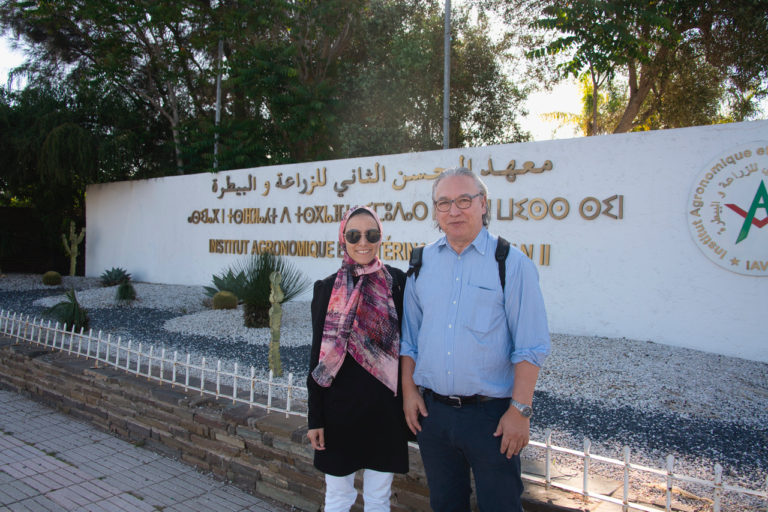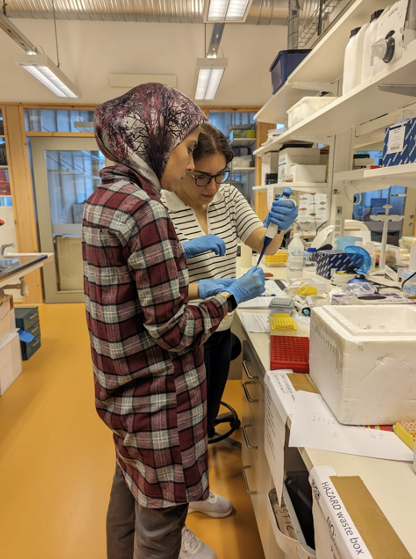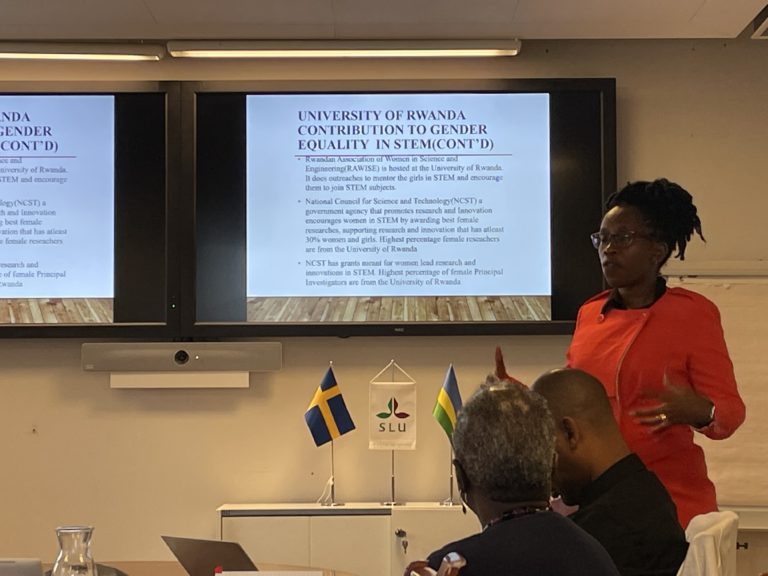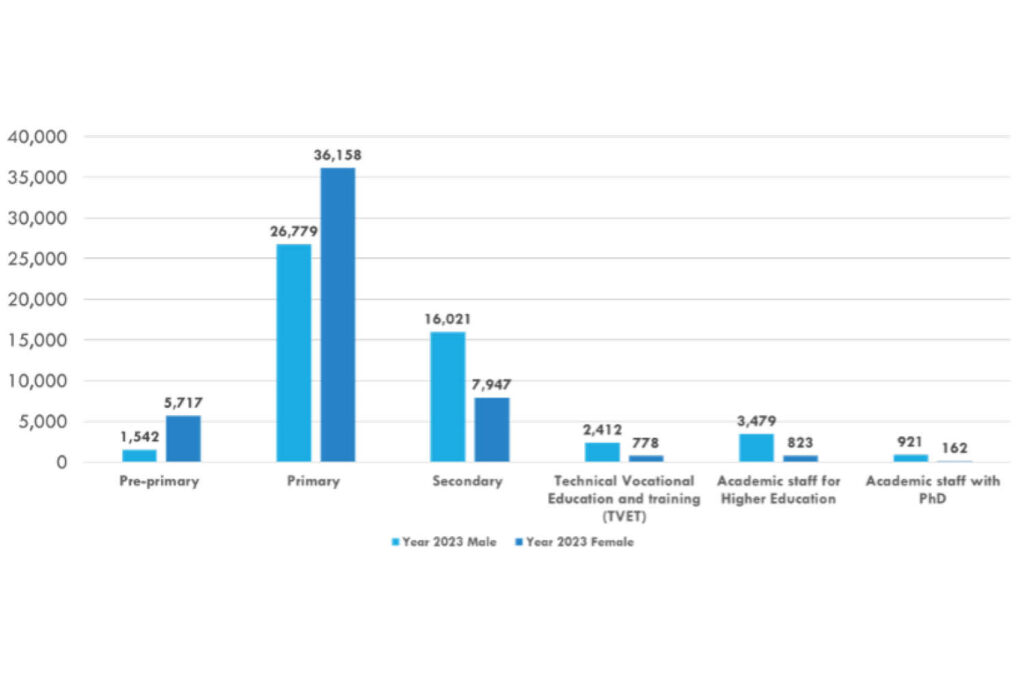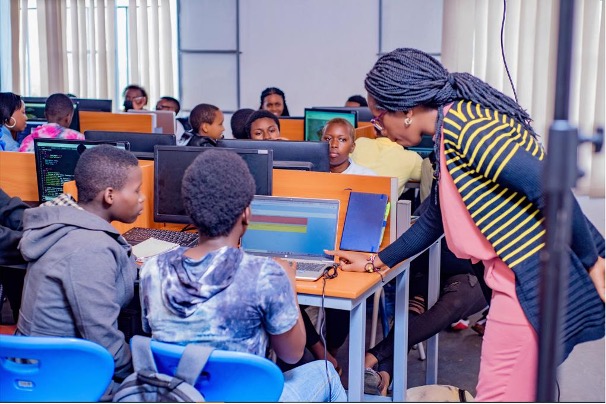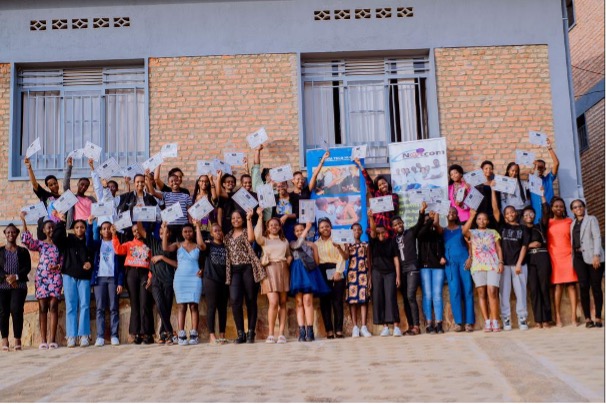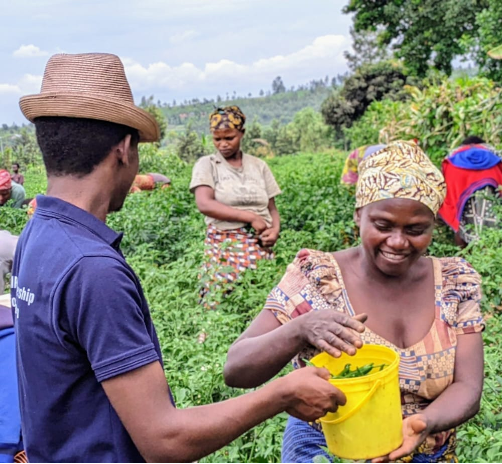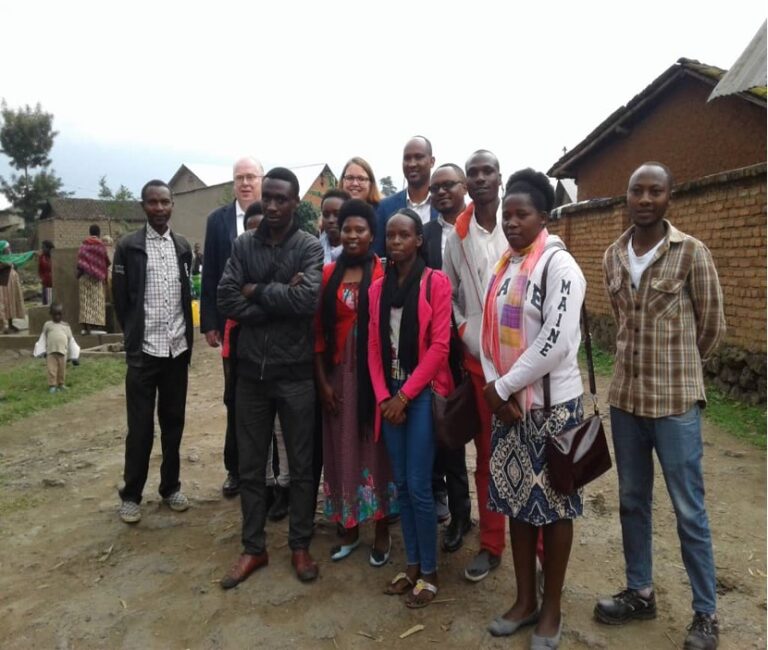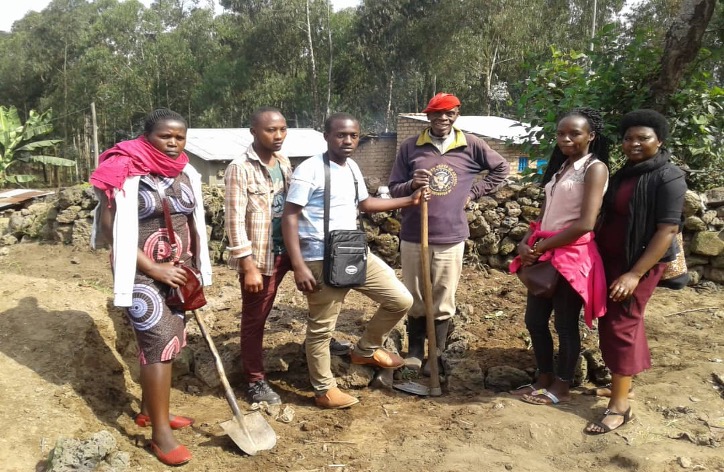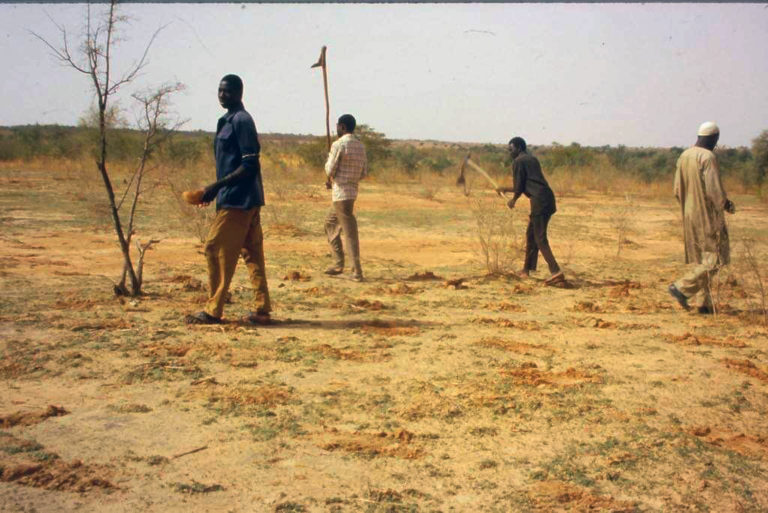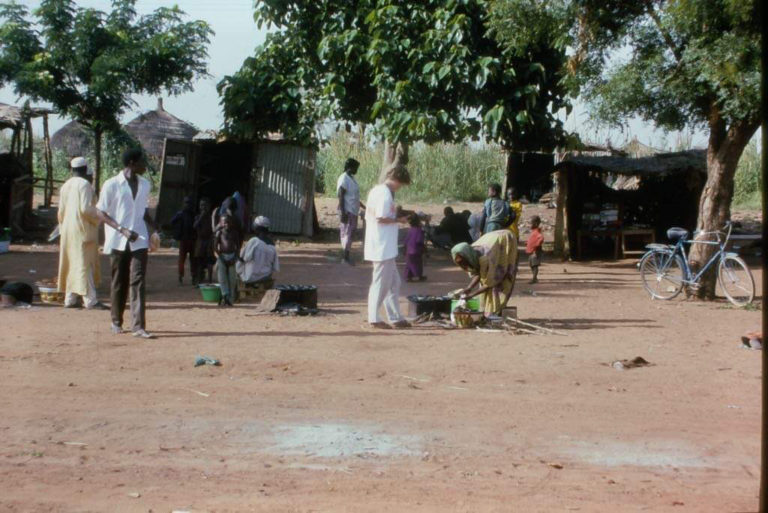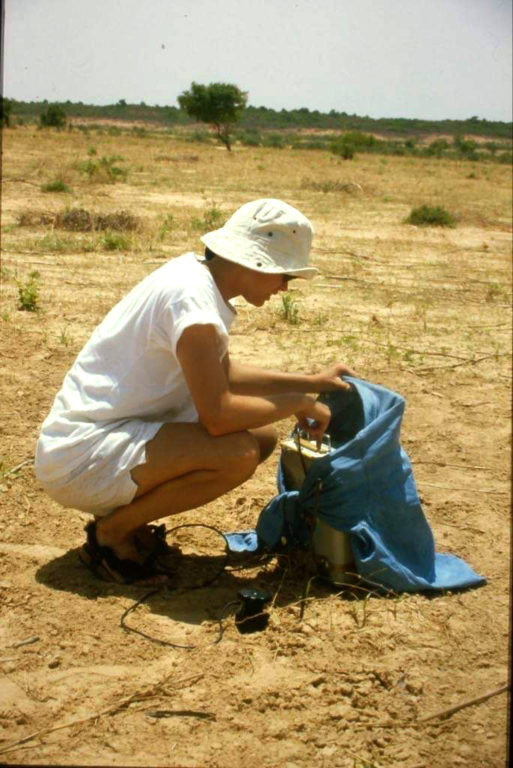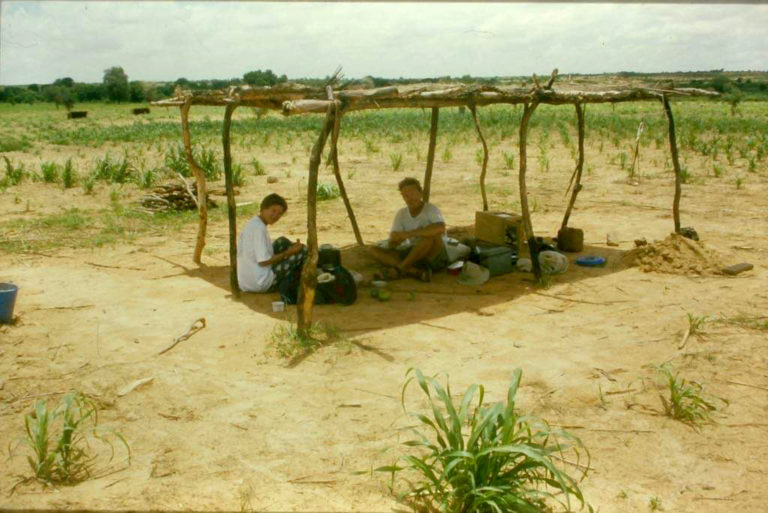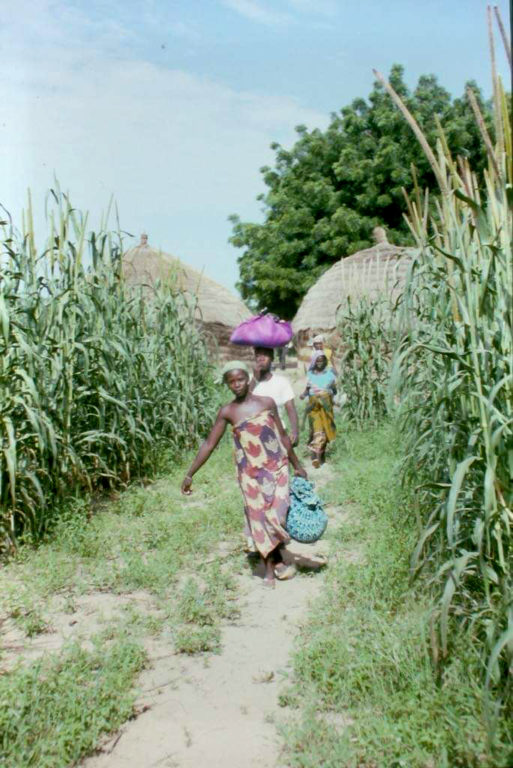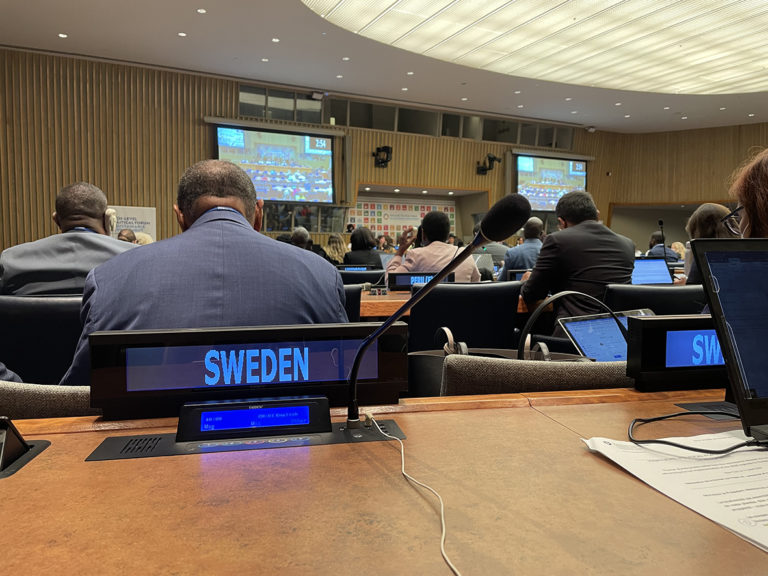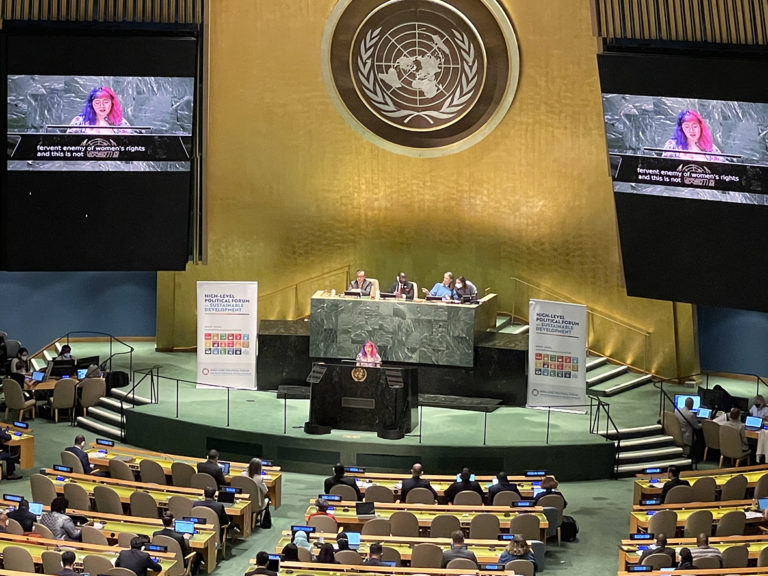This blog post is written by Mary Theodorah Ajal, Master’s student at SLU.
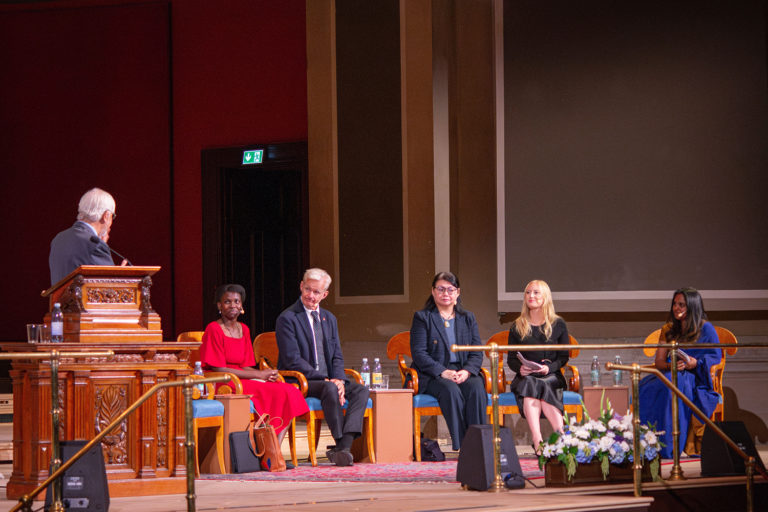
From left: Peter Wallensteen, Mary Theodorah Ajal, Jan Egeland, Reina Lee, Linnea Törnlund and Janithrika Jayasundara. Photo: Dag Hammarskjöld Foundation
On 16 September 2024, I had the honor of representing the Swedish University of Agricultural Science as one of the panelists during the Dag Hammarskjöld annual lecture, organised by the Dag Hammarskjöld Foundation.
Before the invitation to participate as one of the panelists, I did not know who Dag Hammarskjöld was nor anything about Dag Hammarskjöld Foundation. Luckily, I was brought to speed with different materials and information about Dag Hammarskjöld and the previous Dag Hammarskjöld annual lectures. I must say I was so overwhelmed when I learned about the high-profile individuals, who in the previous year’s gave lectures, and the speakers I would be meeting. I am grateful for the guidance offered by Prof. Peter Wallensteen; it did calm me down to give my best.
Dag Hammarskjöld served as the UN Secretary-General from 1953 till his death in 1961. He lost his life in the pursuit of peace, on a mission to mediate the Congo crisis in the 1960s. I am humbled to have participated in an event that celebrates and honors the life and service of Dag Hammarskjöld.
I had the honor of sharing the stage with several distinguished guests including Rena Lee, Ambassador for International Law and Chief Executive of the Intellectual Property Office of Singapore, Secretary General for the Norwegian Refugee Council, Jan Egeland, Prof. Peter Wallensteen, Senior Professor of Peace and Conflict Research at Uppsala University, and my fellow panelists Janithrika Jayasundara, Pax et Bellum and Linnea Törnlund, the Vice President Uppsala Association of Foreign Affairs.
I was privileged to meet the Vice Chancellor of Uppsala University, Professor Anders Hagfeldt, Chairperson Dag Hammarskjöld Foundation Board of Trustees, Hans Wallmark, and many other distinguished guests.
In one sentence the event was surreal.
I learned from Secretary General Jan Egeland that peace can’t be pursued passively. Conflict resolution isn’t possible with hypocrisy or selective application of laws.
Despite all, there’s hope as long as there is someone making the bold steps to restore peace. As long as there is someone speaking up and acting on it, there is hope for peace.
Ambassador Rena Lee is a woman crowned in grace, wisdom, and humility. She’s a testament that anything is possible. As a young woman looking forward to making the world a better place, she fueled my will and zeal.
I had the great opportunity to ask her questions about
the Agreement under the United Nations Convention on the Law of the Sea on the Conservation and Sustainable Use of Marine Biological Diversity of Areas beyond National Jurisdiction (BBNJ Agreement) or “High Seas Treaty” in the areas of deep-sea exploration and plastic management in the oceans.
I thank SLU for the opportunity to participate in the Dag Hammarskjöld annual lecture. I am also privileged to receive funding from SLU Global through the Minor Field Study (MFS) grant to facilitate my master’s thesis research abroad in the Karamoja region, North Eastern Uganda. My study will focus on the Characterization and productivity of kitchen gardens and their contribution to food security and livelihoods in the Karamoja region. I am excited about my research because it will be able to inform policy and shape how kitchen gardens can be implemented in agropastoral and pastoral regions to enhance food security and livelihoods.
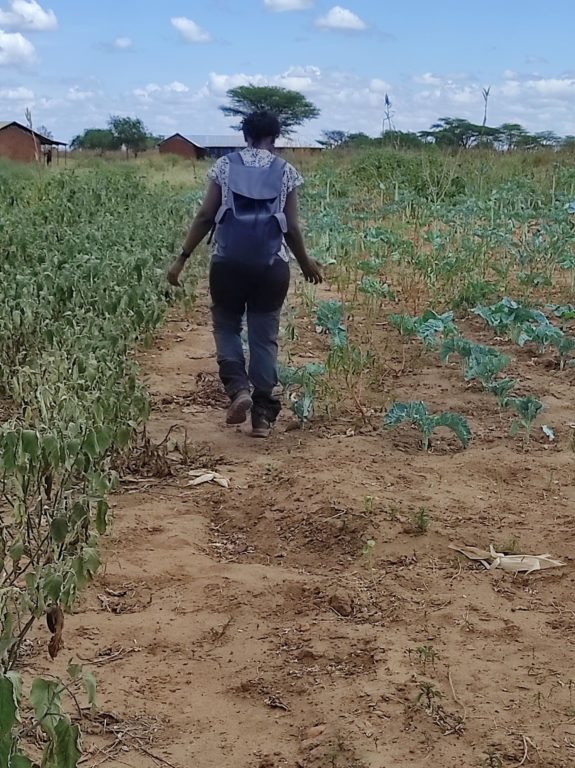
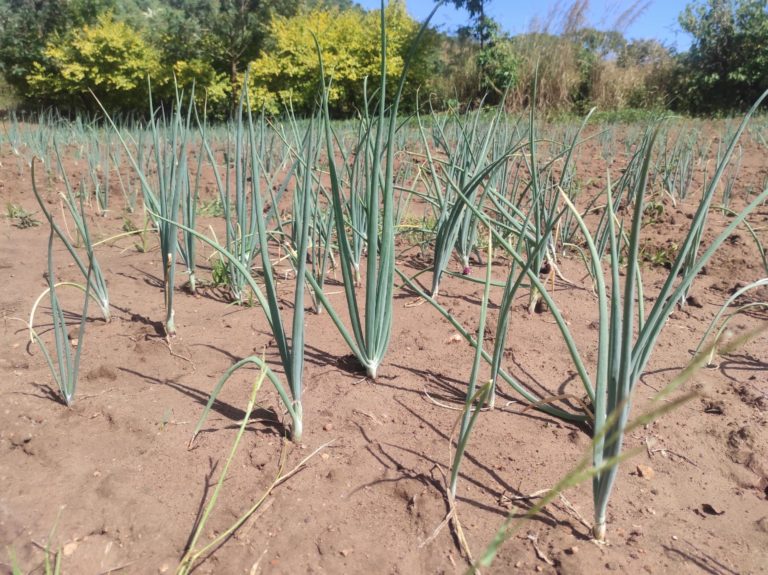
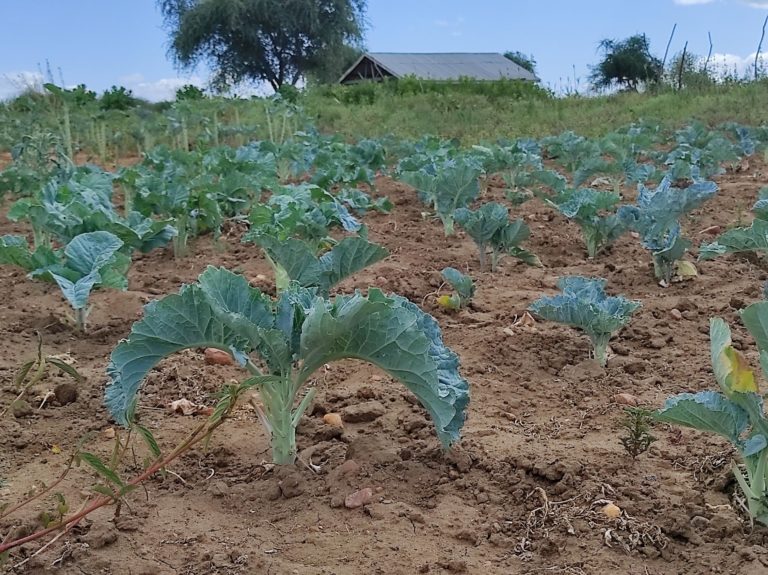
Kitchen gardens in Moroto, North Eastern Uganda, where I am doing my research for my Masters thesis.
Photos: Mary Theodorah Ajal
I am eager to gain an understanding of kitchen gardens in an agropastoral and pastoral region. “Is it the same as my understanding of kitchen gardens in Sweden, or in my small hometown in Tororo, Eastern Uganda or is it something new and beautifully different?”
About my future plans, I am looking forward to pursuing a PhD when an opportunity opens but I am also open to working with organizations that are supporting local/indigenous food systems to become more sustainable and resilient.
To learn about Dag Hammarskjöld visit: https://www.daghammarskjold.se/
Watch the recording of the Dag Hammarskjöld lecture 2024 here: https://www.daghammarskjold.se/dag-hammarskjold-lecture/the-dag-hammarskjold-lecture-2023-2024/
Yours truly, Mary Theodorah

